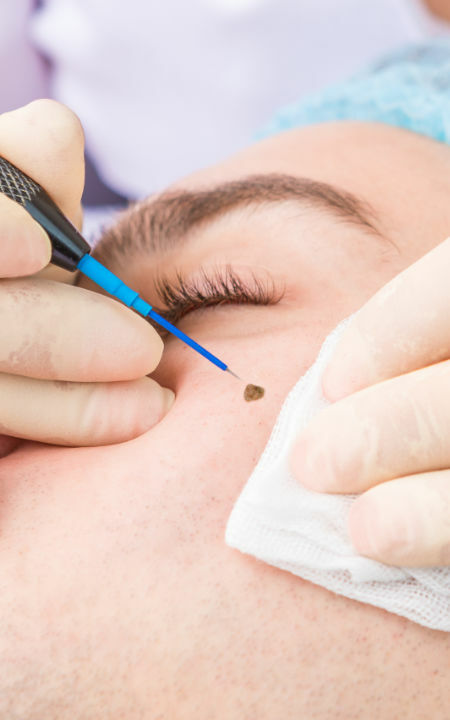Skin cancer checks & Mole removal
Skin cancer doctors have expertise in scrutinising and identifying moles that appear dubious for cancer or other types of skin conditions.

Short skin check
Our expert skin cancer doctor will perform a thorough evaluation of 1 – 3 moles.
$120 Adult
$80 Child (13 years or younger)
Book a Consultation ›Full skin exam
A comprehensive skin checkup involves assessing the entire body and promptly addressing any precancerous lesions, if necessary.
$250 Adult
$130 Child (13 years or younger)
Book a Consultation ›GP consultation
For a standard General Practitioner consultation to deal with everyday issues.
$60
Book a GP Consultation ›A visit to a skin cancer doctor for a "mole check" is a frequent reason for a skin check. Skin cancer doctors have expertise in scrutinizing and identifying moles that appear dubious for cancer or other types of skin conditions.
Over the past decade, Dr. Graeme Bishop has dedicated himself to specializing in skin cancer. He spent nine years practicing at a renowned skin cancer clinic, where his expertise played a crucial role in conducting thorough skin examinations.
Dr. Bishop meticulously inspects moles to detect any potential abnormalities, including moles, skin tags, warts, and acne. Actinic keratoses and Seborrhoeic Keratoses are among his areas of expertise.
During your initial appointment, our doctor will evaluate your risk of developing abnormal moles or skin cancer.
Following this, a complete skin examination will be performed, and you will need to undress down to your undergarments. If you have any concerns regarding growths or moles on your genital or scalp area, please inform our doctor.
We use a specialized hand–held light device called a dermoscope to analyze your moles. If necessary, we may record a digital dermatoscopic image of your mole for future reference.
Methods of mole removal
Various methods are available for mole removal, such as: cryotherapy, shave biopsy, punch biopsy, electrocautery, and excision. The most suitable approach for removal will be thoroughly discussed.
Surgical Excision
Surgical excision is considered the preferred method for removing many types of moles, especially those that have changed and or suspected to be skin cancer. Local anesthetic is used to minimize any discomfort. During this procedure, the mole is cut out using a scalpel along with a small amount of surrounding skin to ensure complete removal of pigment cells. Stitching is typically required, resulting in a small scar that will improve over time. The excised mole will be sent for histological analysis, and the results will be reviewed with you in clinic.

Electrocautery is a safe procedure that is routinely used by doctors and highly trained aestheticians to remove unwanted skin growths such as warts and skin tags.